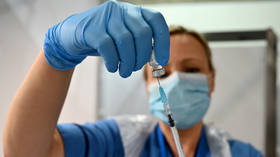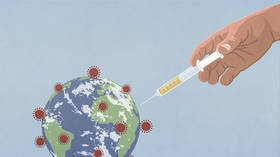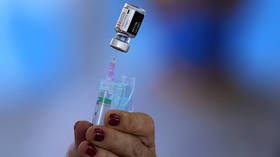Slowly we are learning more about the level of risk Covid vaccines present

A US-based study has found a raised risk of myocarditis in the first week after vaccination against Covid-19. Rates of myocarditis have risen the most in teenage boys and young men, usually after the second vaccination dose.
The study, conducted by US Centers for Disease Control and Prevention (CDC) researchers and published in the Journal of the American Medical Association, examined reports of myocarditis after mRNA-based Covid-19 vaccination (i.e., Pfizer-BioNTech and Moderna). Myocarditis is inflammation of the heart muscle, called the myocardium, and has been recognised as a rare side effect of the mRNA vaccines since last summer.
As the abstract for the study points out, “Vaccination against Covid-19 provides clear public health benefits, but vaccination also carries potential risks. The risks and outcomes of myocarditis after Covid-19 vaccination are unclear.”
The data was extracted from the Vaccine Adverse Event Reporting System (VAERS), the CDC’s portal for reporting side effects. Reports had to meet the CDC’s case definition for myocarditis to be included in the analysis, which required “abnormal cardiac test results, and no other identifiable cause of the symptoms and findings.”
The rate of myocarditis was highest in boys aged 16 to 17 (105.9 cases per million second doses of Pfizer). It was next highest in boys aged 12 to 15 (70.7 cases per million second doses of Pfizer). Almost as high was the rate in 18- to 24-year-old men. It also affected older people and women, at lower rates.
This is the usual pattern for myocarditis: it also primarily affects young males when caused by something other than the vaccines (usually a viral infection). The authors suggest that this is why the risk was not spotted until months after the vaccines’ Emergency Use Authorization in the US, after they had been rolled out to these age groups. Why the ongoing clinical trials did not identify the association remains unclear.
However, the vaccine-induced myocarditis seems to flare up quicker (around two days after vaccination) and go away quicker than typical viral myocarditis. While almost all of the young men (96%) who got myocarditis from the vaccines went to hospital, the vast majority (87%) of them had recovered by the time they were released, generally after treatment with anti-inflammatory drugs.
As about 6% of ordinary myocarditis cases are fatal or require a heart transplant, those affected by this side effect are advised not to play competitive sports for three to six months, and return only subject to precautionary heart tests. The CDC intends to continue to monitor some of these boys to see how they are faring after some months.
This is not the first study to find an association between the Covid vaccines and cardiac incidents. However, compared with the nearly 200 million doses administered during the trial period, the total number of confirmed myocarditis cases (1,626) is miniscule. That said, in this case underreporting is the most likely limitation on the data, and “the actual rates of myocarditis per million doses of vaccine are likely higher than estimated."
How much higher is not yet known, and will require more and better data from large populations.
The statements, views and opinions expressed in this column are solely those of the author and do not necessarily represent those of RT.














